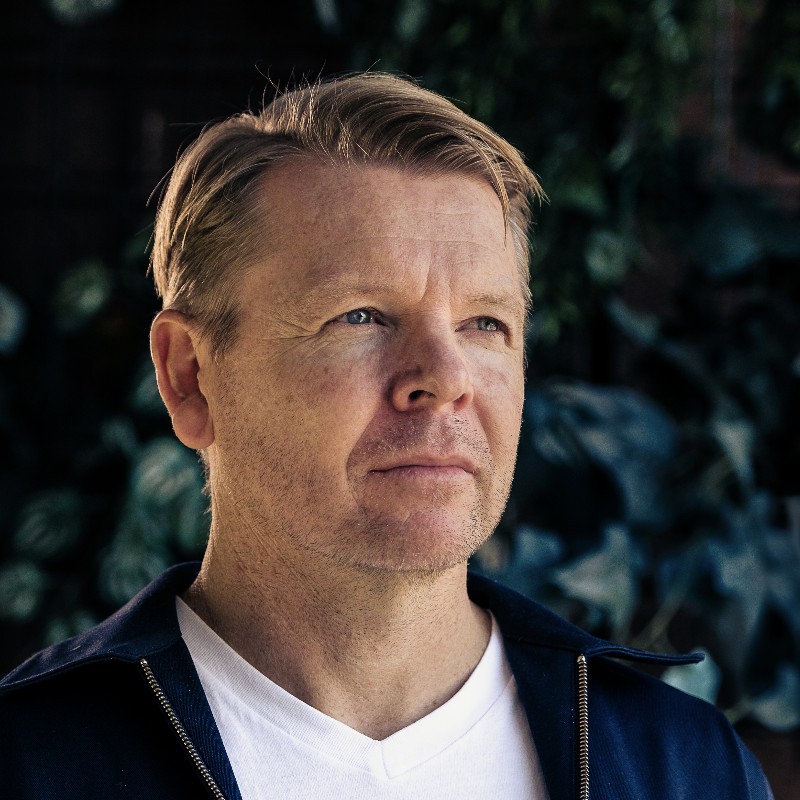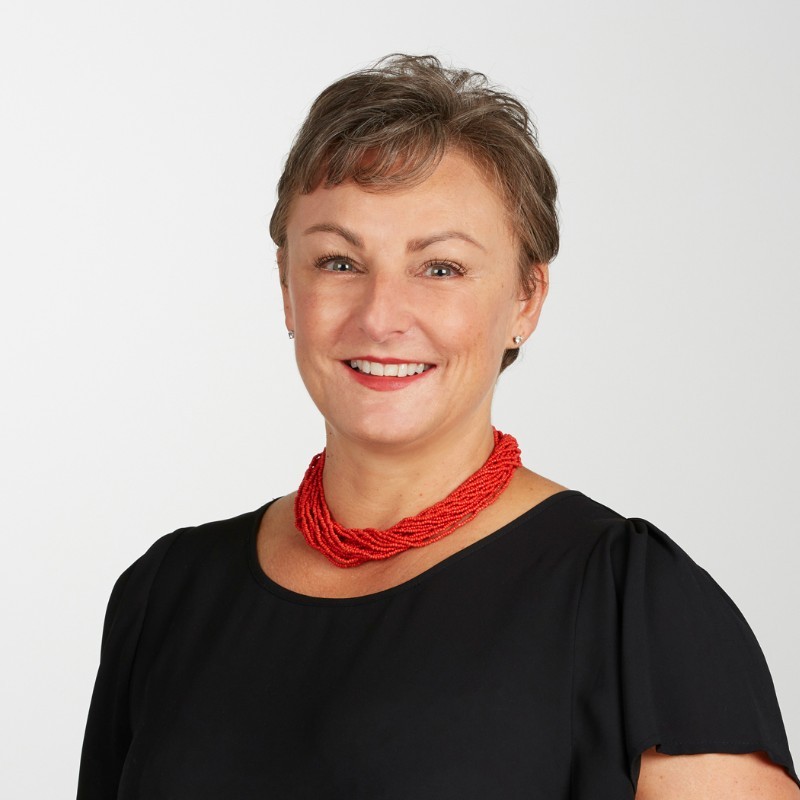Despite never being able to accurately explain to my kids what I do for a living (the closest I got was to say my job is to walk around persuading people to agree with me), both want to pursue creative careers. My dream is for them end up working on the same film project, albeit in different departments, just so I can go to the cinema to whistle and holler at the credits.
They’ve asked me how I got my start and I’ve told them my story of persistence and luck* but I’m not sure it’s as relevant or instructional today. The rules have changed, the competition is fierce and, to be honest, I’m not sure I recognise the playing field.
In the spirit of Jack Sparrow, I offer what are ‘more like guidelines’ for young people (or people of any age, really) who have their heart set on a job in the creative industries.
You're going to need education. But is the juice worth the squeeze?
For an ATAR-obsessed generation, the obvious question has to be: do degrees even help you in a creative career? Unlike regulated professions (medicine, engineering, builders), there are no certifications* required to be a creative. That’s not to say you shouldn’t actively collect skills and knowledge—and be able to demonstrate your ability to learn, via certification. The problem lies in the institutions (companies, in reality) running the market.
My partner is an educator. Seeing the ‘system’ from the inside, she’s not convinced it’s working for anyone other than the private providers. A positive pandemic side-effect was the normalisation of remote and hybrid learning, as well as the rise of ‘micro-credentials’. These are short, focussed, single-topic classes and courses that work either as standalone modules or can be aggregated to form a larger certification. Micro credentials are generally a lot more affordable and usually oriented to specific commercial skills. They are also a lot more structured and effective than simply ‘watching some YouTube videos’. Check Scott Galloway’s Section.
For those of us a little further along in our creative careers, my partner also advocates for life-long learning, which doesn’t mean going back to do a course or two when you’re retired, but rather embracing ABE: Always Be Enrolled (even informally). In the last few years, I’ve completed short courses in studio lighting, video editing, business strategy, colour grading, improv theatre and astro-photography. Currently, I’m a classmate with my youngest as we learn to DJ**. Good grief!
You're going to need experience.
But you need experience before anyone will trust you enough to give you the opportunity to gain experience.
Talk about a paradox. Almost like it’s designed to keep newcomers out of a competitive and appealing industry. (Spoiler alert: it is) My advice? Avoid competing for that advertised unpaid summer internship and make your own client instead. Go find someone who needs the work that you do (or want to do) but cannot afford to pay you (or anyone) for it.
Think sports clubs, bands, non-profits, community groups, clubs and associations. They all want websites, videos, posters, copywriting, social media, photography, design, event management, logos, merch and on and on.
It’s tempting to choose an activity/group/cause you have interest in, but here’s my next piece of advice: choose something you know nothing about. This will teach you the critical skills of researching and understanding your client’s audience, answering a brief, building trust with the client and managing your time to a deadline.
Don't feel ready to perform in public just yet?
No problem: copy something. Like the kid pulling apart a toaster to see how it works, deconstructing an ad you like, or a layout, or a social video (or literally anything) will give you some insight to what’s inside great work. Make a copy. Now make your own version. Now do a parody. Now do it for a different audience. Now shift it to a different channel. Document your approach and your thinking (like a Director’s Commentary track on a movie), because creative hiring managers look for proof of the thinker behind the work as much as they look at the quality of work.
You're going to need some passion. But you should run as far from glamour as you can.
If you want a commercially sustainable creative career, learn to follow the money. In the 80s the glamour creative industry was advertising. In the 90s it was magazines. 2000s it was music videos. The 2010s were Pay TV and streaming. Now in the 2020s it appears to be gaming and social. When an industry appears ‘cool’, employers take advantage of the surge in demand (particularly among younger workers and fresh grads) by lowering the pay. Sometimes to basically zero (hello, unpaid summer internship).
At different times, I’ve found steady jobs and good money in medical and pharmaceutical brands, B2B technology services, financial services and sometimes, property. When everyone in the agency wanted to write the 60 second brand TVC, I learnt how to write Direct Marketing. Conversely, I’ve seen big agencies basically work for free on ‘glamour accounts’ in fashion, beverages and youth-oriented FMCG. These brands know this. Some of them build their business model on it.
Protip: the money (generally) heads in the opposite direction to glamour. Daggy companies. Dusty brands. Unfashionable industries. Complicated niches. Fussy formats. These marketers have problems to solve and budgets to solve them with.
However, you’ll need to demonstrate some level of industry specialism, expertise or experience. (see above).
What's happening in my house?
My youngest is wanting to get into film and tv and would love to become a director. Aiming high, this one. She’s already started scoping out courses and attending open days, only to arrive at the conclusion that she could spend thousands of dollars and a couple of years but still not gain the one thing nearly every creative role demands: recent relevant industry experience. She’s volunteering on film sets (call me if you need a free runner for your next shoot, I can hook you up) and has formed a little production collective with some like-minded friends to make short videos.
My eldest stepped away from the traditional education path to find out what he really wanted to do. It has come to him, through trial and error, as he works his way through a bunch of hobbies and skills and courses: sewing, drafting, pattern making, resin casting, embroidery, painting and model building are all going into the mix as foundational elements of a career path that is unfolding on its own: props and practical effects for screen and theatre. A 3D printer just landed on our doorstop, so I’m guessing that’s the next skill he’s adding to the repertoire. He’s going to need some help to make connections and talk his way into a workshop or studio, but I’m pretty confident he now knows that’s where he wants to be. (Call me if you need someone to make a monster’s head, an anime costume or a set of glistening entrails – I know a guy.)
It's not easy. But it's not (yet) impossible.
I’m hopeful my kids will eventually work out a way to feed themselves. Not because they’re amazing and talented (I’m sure all kids are, right?), but because the market for creative professionals (notwithstanding AI and brute force capitalism) looks healthy in the medium term. The streaming explosion and the social explosion and the influencer explosion and the content explosion, coupled with the democratisation of the means of quality creative production, means both and demand and supply have swollen. That’s a sign of a healthy market.
Ready to work out how to get paid to be (commercially) creative? Find the micro-courses you can afford to develop the skills that satisfy you, apply them to the non-glamour end of whatever industry you’re looking at, then use your deep reservoirs of persistence to generate yourself a sliver of luck.
*Persistence and luck. Yesthey are related and yes I needed both. I suspect you will, too. Here’s how I got started: I did go to uni and, while it wasn’t free (It was, from memory, the second year intake to incur what was then called HECS), the fees were modest and the HECS debt was effectively interest free—I didn’t start paying until I’d started earning semi-decent money. I did choose my course because it had no exams and no grades —your portfolio was all you got out of it. Because that’s all any employer would ask to see.
I made full use of all the free equipment and studio time available, making silly little video clips to amuse myself. This was a big deal, as filming and editing equipment was verrrry expensive, in relative terms. Today, my mobile phone could easily make videos of a vastly superior technical quality.
I spent time with the lecturer who seemed to be running the courses that were leading to where I wanted to go. (persistence) This lecturer was very commercially oriented (not all of them are) and arranged a work experience placement at a nearby agency as one of the prizes for an end-of semester project. (luck) I worked my butt off making my entry project, including a complete rebuild when a computer crash ate the entire edit 24 hours out from the deadline (persistence). I won the placement (luck) and spent the week at the agency writing as many ads and asking as many questions as I possibly could (persistence). The agency was invited to a pitch (luck). They asked if I would come back the following week to help work on it, so spent every day running between classes and the agency (persistence). The agency used some of my ideas in the pitch (luck). I kept in touch with some people I’d met at the agency, to the point of being annoying (persistence) so I was in their orbit when it was announced they’d won the pitch (luck). I made it clear that I’d love to keep working on the account they’d just won (persistence), which morphed into a job offer (luck) which my lecturer described as a miracle, considering the country was in the midst of its worst recession in decades.
Before I sound too ‘old man on the back porch’, I must acknowledge the massive privilege and head start my white-male-educated-middle-class background gave me. I don’t believe for a second that imbalance has been anywhere near dismantled, sadly.
** If you need a DJ for your next party, call us: DJ LFB and DJ Izzy Rascal. We’ll play for (literal) beer and skittles, respectively.
Latest.

AI adoption failing isn’t the tech, it’s the people. How smart businesses overcome this.
Technology, Thought Leadership, Industry Trends

Temp-to-perm is the best way to hire today.
Hiring Insights

How to keep top talent: Strategies for successful onboarding
Hiring Insights, Ask Aquent, Training Resources




